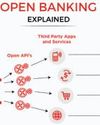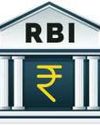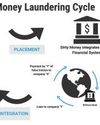
Earlier Qualified Institutional Buyers were only allowed to participate in IPOs through ASBA facility. Currently as per SEBI guidelines, all three categories of investors, i.e., Retail Investors, Qualified Institutional Buyers, Non-Institutional Investors, making application in public/rights issue shall mandatorily make use of ASBA facility.
ASBA process facilitates retail individual investors bidding at a cut-off, with a single option, to apply through Self Certified Syndicate Banks (SCSBs), in which the investors have bank accounts. SCSBs are those banks which satisfy the conditions laid by SEBI. SCSBS would accept the applications, verify the application, block the fund to the extent of bid payment amount, upload the details in the web based bidding system of NSE, unblock once basis of allotment is finalized and transfer the amount for allotted shares to the issuer.
ASBA means "Applications Supported by Blocked Amount". ASBA is an application containing an authorization to block the application money in the bank account, for subscribing to an issue. If an investor is applying through ASBA, his application money shall be debited from the bank account only if his/her application is selected for allotment after the basis of allotment is finalized, or the issue is withdrawn/ failed. This allows the investors money to remain with the bank till the shares are allotted after the IPO. Only then does the money transfer out of the investors account to the company. This eliminates the need for refunds on shares not being allotted.
It is a supplementary process of applying in Initial Public Offers (IPO) and Follow-On Public Offers (FPO) made through Book Building route and co-exists with the current process of using cheque as a mode of payment and submitting applications.
This story is from the September 2022 edition of BANKING FINANCE.
Start your 7-day Magzter GOLD free trial to access thousands of curated premium stories, and 9,000+ magazines and newspapers.
Already a subscriber ? Sign In
This story is from the September 2022 edition of BANKING FINANCE.
Start your 7-day Magzter GOLD free trial to access thousands of curated premium stories, and 9,000+ magazines and newspapers.
Already a subscriber? Sign In

Combating Cyber Threats in Banking: Prevention, Detection, and Response Mechanisms
In the digital age, the Banking sector has undergone a remarkable transformation, leveraging technology to offer seamless and efficient services to customers across the globe.

Creating a Winning Sales Pitch for SIPs and Mutual Fund Products
In the competitive world of financial services, effectively communicating the value of Systematic Investment Plans (SIPs) and mutual fund products is crucial for success.

Banking in the Era of "Data Privacy": Impact of Digital Personal Data Protection Act (DPDPA) on the Banking Industry
In modern world, data is a valuable asset which helps in the revenue generation process of a company/organization.

Opportunities and Risk for Traditional Banks in Embracing Open Banking
Technology has simplified our lives by making the processes easier and integrating into our daily routines.

RBI CIRCULAR
Coverage of customers under the nomination facility

Decoding Financial Crime of Money Laundering
This article is about the definition & concept of financial crime of money laundering.

The Future of Mutual Funds in the Digital Era: Trends and Challenges
The mutual fund industry has witnessed a significant transformation over the past decade, driven by rapid advancements in technology and the proliferation of digital platforms.

Future of BankingBlockchain Technology
Blockchain banking is a new technology in India, but it's gaining traction due to its worldwide success in finance and other sectors.

Legal News
SC: Parents Can Be Legally Compelled to Provide Education Money to Daughter

Economic Value of Equity (EVE) Demystified
In the realm of finance and economics, the concept of equity plays a pivotal role in assessing the health and potential of businesses, projects, and investments.
